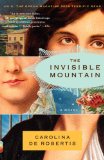Summary | Excerpt | Reading Guide | Reviews | Beyond the Book | Readalikes | Genres & Themes | Author Bio

"We're listening. To birds."
Artigas opened his mouth to protest this absurdity but nothing could
come out because in the time it took to draw his next breath it had
occurred, it was too late, the sound of the field flooded his body, birds
sang in the sky and in the leaves, his bones were bursting open, there
were birds in his bones, singing, small and loud and delicate, hidden in
flesh, hidden in foliage, saying the unsayable in keens and croons and
cries, almost unbearable; the field, the fierce little throats, the open
world, beyond his understanding, and the sound shimmered open and
spilled a secret music that could steal him and never bring him back. He
filled with terror and something else and had to pee or cry but couldn't,
and so he buried his face in musky grass and listened to birds.
They found no baby that day. In fact, on New Year's, it was neither
Tía Tita nor Artigas but young Carlita Robles who galloped to the plaza
with the news. Artigas saw her walnut braids flying behind her with the
exact same hue and gleam as her horse, as if they had been soaked in
the same dye. Her timing was perfect. The century was nine hours old.
The plaza's cobbles sizzled from the stare of morning sun. Stragglers still
clung to the site of the party: snoring drunks, young lovers, stray dogs,
Artigas with his worn guitar (with which he strained, against all reason,
to enter the hidden lairs of sound). The devout Doña Rosa still hadn't
emerged from church. She'd been there since midnight. She'd been fasting
since Christmas so that God would not make their miracle a bad
one, like a massacre or cholera or a flood of infidelities (though nobody
took her campaign too seriously, as three years earlier, when her son had
disappeared with Aparicio Saravia's rebel forces, she'd become obsessed
with fasts and prayer and if her husband couldn't find her he simply rode
to church, where he'd invariably catch his kneeling wife and bring her
home to cook his dinner. Such a patient man, people said. Not an easy
lot, to be cuckolded by God).
"I found it—the miracle!" Carlita called. "There's a baby in a tree!"
Artigas stopped strumming, the couples stopped kissing, and Alfonso
the shopkeeper lifted his groggy head from the bench.
"Are you sure?"
"Of course I'm sure."
"Let's go see."
They went to the chapel first, to tell Doña Rosa. Stained light eased
over their heads and sidled to the pews, down the aisle, over Doña Rosa's
pious back. Carlita dipped into holy water and made a rushed sign of the
cross. Artigas followed suit for her sake (she was so pretty).
"Doña Rosa," Carlita whispered. "The miracle. There's a baby in a ceibo!"
Doña Rosa looked up from her rosary. "A baby?"
"Yes."
"Ah." She frowned. "What a blessing."
They rode the dirt path toward the eastern edge of Tacuarembó. Artigas
settled into the hot equine muscle beneath his legs. The sleepless
night had left a veneer of alert exhaustion and he didn't want to rest. He
would ride his horse to the edge of town; he would ride his horse to the
edge of the world; it was a new century, he would ride and ride, and a
baby could be, no it couldn't, impossible, but if it was. How bright the
colors were around him, the green and gold of summer grass, the hot
blue of morning sky, the dark-wood brown of the ranchitos out of which
more people came to join their travels. Kerchiefed women craned their
heads through curtained doorways for the news, then left embers glowing
alone in cooking pots. Men drinking mate in the sun untied their
horses and scooped their children into saddles.
Excerpted from The Invisible Mountains by Carolina De Robertis Copyright © 2009 by Carolina De Robertis. Excerpted by permission of Knopf. All rights reserved. No part of this excerpt may be reproduced or reprinted without permission in writing from the publisher.
Your guide toexceptional books
BookBrowse seeks out and recommends the best in contemporary fiction and nonfiction—books that not only engage and entertain but also deepen our understanding of ourselves and the world around us.